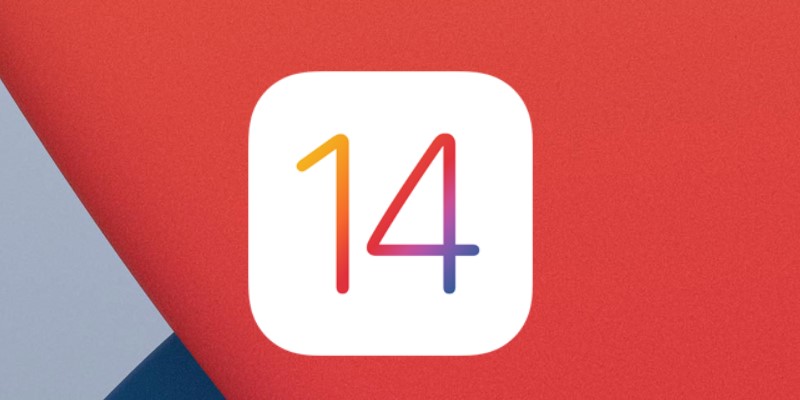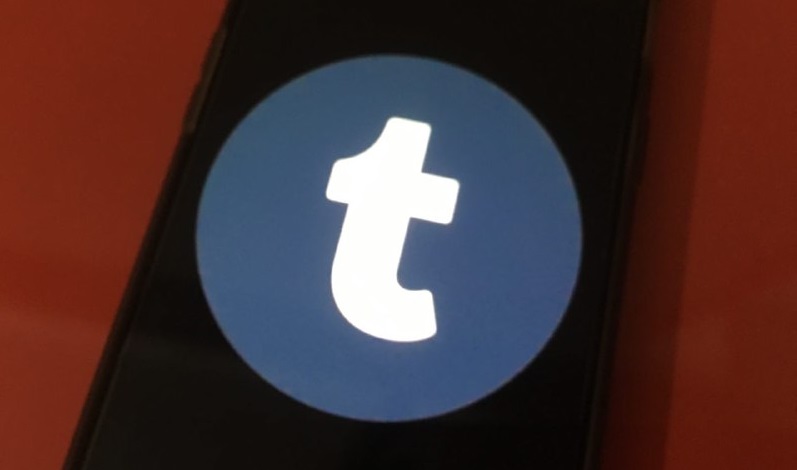Everyone is aware of the fact that most apps collect our data. And while most of the data collection is crucial to the working of the app — like for example, your location on Google Maps — it isn’t always that healthy.
Social media giants like Facebook are known to collect sensitive data. This may include your activities across apps and websites, purchase history, contact information, and the like. This data is in turn used to target ads.
That said, most of the apps known to collect such data usually give out a privacy policy when you sign up for the app or open it for the first time. Occasionally, the policy may even be stowed away in submenus.

Let’s be honest with ourselves here though. Nobody reads it. After all, there is evidence to prove that privacy policies are deliberately written in a vague stretched language in order to reduce risk against lawsuits and fines.
Apple saw this growing problem and came up with a new requirement for all software developers to include ‘privacy labels’ on all apps published through the Apple App Store.
These labels are designed to be easily scannable and present all the data collected by the apps in a brief pictorial format. One can even say that they resemble nutrition labels found on food packaging.
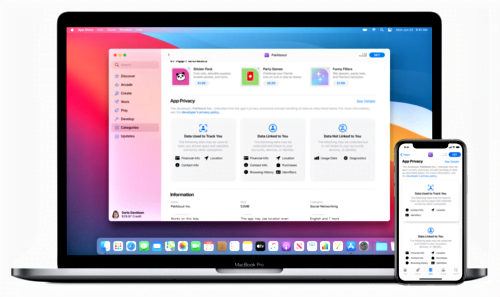
Privacy labels aren’t all that’s done by Apple in its apparent crusade against data collection though. It has now come to light that Apple has begun to proxy Google Safe Browsing to prevent IP address exposure in its Safari browser.
So what exactly is Google Safe Browsing? Well, in simple terms, it is a system put in place by Google a decade or so back that has revolutionized web browsing.
It works by identifying and flagging unsafe links and sites known for containing malware. This helps notify users and webmasters of potential harm so that they avoid visiting such sites.
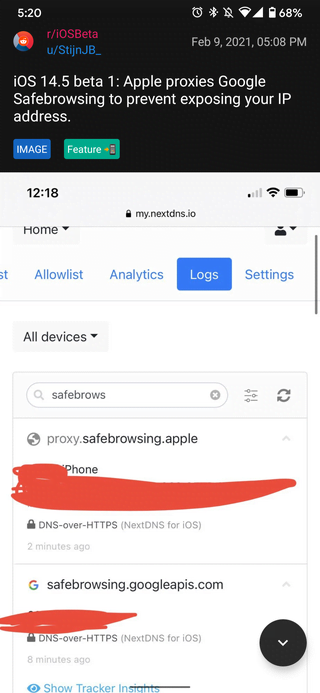
Apple uses this service when you turn on “Fraudulent Website Warning” in your Safari browser settings on iOS, and has done so for quite some time now.
This process involves sharing your IP address, which can reveal your general location and other details, with Google.
Nonetheless, seemingly with the latest iOS 14.5 beta, Apple has implemented some changes that help proxy your Google Safe Browsing traffic through Apple’s servers so that Google no longer has access to your device’s IP address. Thus granting increased privacy protection.
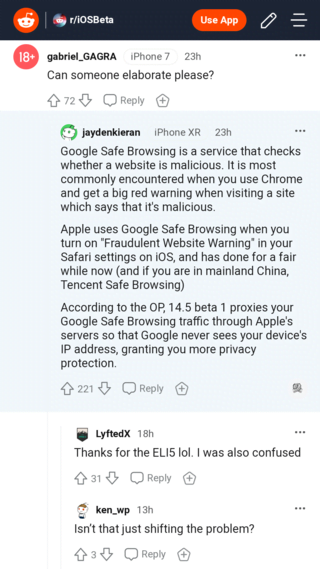
Now, users could argue that this move doesn’t exactly make a difference since their IP address details have only been shifted from being exposed to Google to being accessible by Apple.
However, it is worth mentioning here that unlike Google that uses user data for targetted advertising, Apple’s business model is based on selling hardware. Now, of course, contradictions can be made to this argument, but this is what the bigger picture says.
Anyway, be sure to convey your thoughts to us through the comments section below regarding all this and its implications.
PiunikaWeb started purely as an investigative tech journalism website with a main focus on ‘breaking’ or ‘exclusive’ news. In no time, our stories got picked up by the likes of Forbes, Fox News, Gizmodo, TechCrunch, Engadget, The Verge, MacRumors, and many others. Want to know more about us? Head here.

